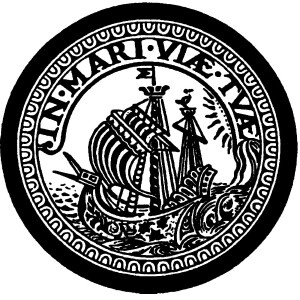
A Cooperative Disagreement: Canada-United States Relations and Revolutionary Cuba, 1959–93
 2023-11-23
2023-11-23
Download
Right click and do "save link as"
Greg Marchildon talks to John M. Dirks about his book, A Co-operative Disagreement: Canada-United States Relations and Revolutionary Cuba, 1959-93, published by UBC Press in August 2022.
John Dirks investigates efforts at the senior and working levels of Canada-US diplomacy and bureaucracy to find mutually advantageous ways of cooperating, despite their respective approaches to revolutionary Cuba. When Washington sought the downfall of the communist regime through political isolation and economic strangulation, Canada had deep commercial ties with Cuba and chose engagement instead. These differences in policy created the potential for significant friction, but the burden fell on Canada, as the smaller power, to initiate mitigation strategies. Ultimately, these two North American powers continued to adhere to the hard policy boundaries set by their own governments while establishing a mutually beneficial relationship on issues of intelligence, travel, and other areas of engagement with Cuba.
Drawing on archival documents from both sides of the border, many newly declassified, this comprehensive study reveals how officials in Ottawa and Washington managed to preserve bilateral harmony despite ongoing policy divergence.
Based on deft and thorough archival research, this work will appeal not only to scholars of Canadian foreign policy, diplomatic history, and political history but also to diplomats and others working in the foreign policy field.
John M. Dirks is a historian and professional archivist. Now with the City of Toronto, he taught for several years in the International Relations Program at Trinity College, University of Toronto.
Image Credit: UBC Press
If you like our work, please consider supporting it: bit.ly/support_WTY. Your support contributes to the Champlain Society’s mission of opening new windows to directly explore and experience Canada’s past.
view more
More Episodes
The New History of Black Peoples in Canada
 2022-02-17
2022-02-17
 2022-02-17
2022-02-17
La Loi des mesures de guerre au Canada
 2022-01-20
2022-01-20
 2022-01-20
2022-01-20
The War Measures Act in Canada
 2022-01-20
2022-01-20
 2022-01-20
2022-01-20
The Psychedelic world of Hollywood Hospital
 2022-01-13
2022-01-13
 2022-01-13
2022-01-13
Mackenzie King and the Three Amigos
 2021-12-16
2021-12-16
 2021-12-16
2021-12-16
The Iconic Massey Hall in Toronto
 2021-12-09
2021-12-09
 2021-12-09
2021-12-09
The Ambition and Vision of Joey Smallwood
 2021-12-02
2021-12-02
 2021-12-02
2021-12-02
The 1921 Election, 100 years later
 2021-11-26
2021-11-26
 2021-11-26
2021-11-26
Good Homes for Toronto Workers
 2021-10-29
2021-10-29
 2021-10-29
2021-10-29
The Intrepid James Wolfe
 2021-10-14
2021-10-14
 2021-10-14
2021-10-14
012345678910111213141516171819
Create your
podcast in
minutes
- Full-featured podcast site
- Unlimited storage and bandwidth
- Comprehensive podcast stats
- Distribute to Apple Podcasts, Spotify, and more
- Make money with your podcast
It is Free
- Privacy Policy
- Cookie Policy
- Terms of Use
- Consent Preferences
- Copyright © 2015-2024 Podbean.com





